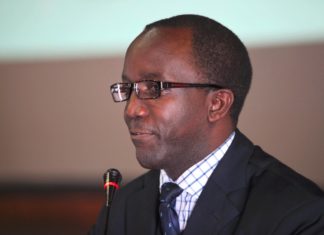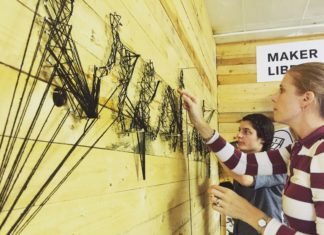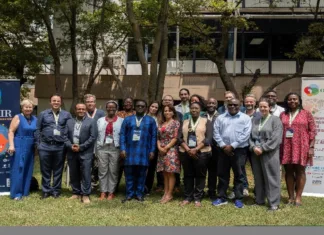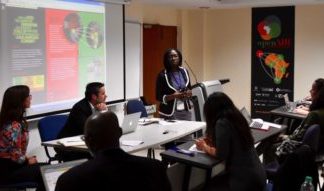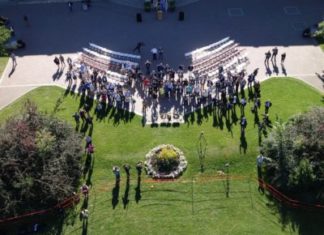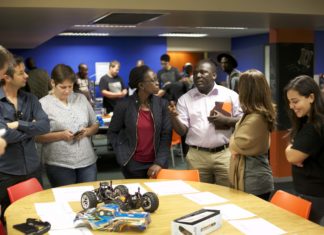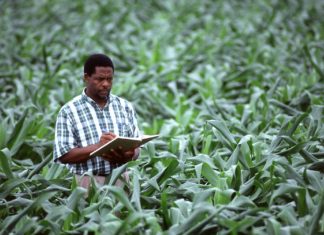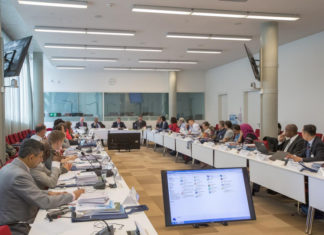Dr. Kakooza “Dealing with Trans-Border Quasi-Intellectual Property”
In October 2010, Yoweri Museveni, the President of Uganda, recorded a rap song titled: "Do You Want Another Rap?" as part of his re-election campaign to capture the imagination of young voters. The song was a huge success and may have played a part in his reelection. When Museveni applied for a copyright registration of the song, however, members of the Ankole community filed an objection stating that the song was derived from Ankole folklore. While the Registrar of Copyrights in Uganda eventually allowed Museveni's copyright application for registration, this case triggered Dr. Anthony Conrad K. Kakooza's interest in the area of traditional cultural expressions (TCEs) and whether TCEs should be recognized within the domain of intellectual property (IP) law.
Prof. Osei-Tutu speaks at the University of Ottawa
Too often, scholarly work and debates relating to Intellectual Property (IP) have focused on the protection and profits of the IP holder, as opposed to promoting open-access and the broader interests of the community. In her talk at the University of Ottawa on February 9th, Professor Janewa Osei-Tutu suggested we readjust the lens through which IP innovation is examined, using human development as the standard.
Common Misconceptions of Patents in Egypt
Earlier this year, the World Intellectual Property Organization (WIPO) held a two-day workshop on “Supporting Small and Medium-Sized Enterprises Use the Intellectual Property System in Their Competitive Strategy” at the Academy of Scientific Research and Technology in Cairo, Egypt, which some of our Open AIR NERG members attended. The goal of this meeting was to discuss how to encourage young innovators to protect their inventions by patenting them at the Egyptian Patent Office. The workshop had vibrant and sometimes heated discussions between these innovators and government officials regarding many of the obstacles faced in the patenting process in Egypt.
Professor Carys Craig Infuses the Open Access Movement with Feminism at...
Is intellectual property (IP) gender neutral? No. Neither is the dominant discourse on innovation. Recognizing this bias is the first step toward remedying it.
In pursuit of a Coalition of the African Innovation Agencies: Doing...
Caroline Wanjiru Muchiri
On Friday 1st March 2024, a group of individuals drawn from various sectors gathered at the University of Johannesburg Business School to...
Open AIR Presents at Fourth Global Congress on IP and the...
By Victor Nzomo
In the midst of two decades of TRIPS and three decades of openness, more than 400 delegates from over 50 countries converged...
How Designing Crops for Global Food Security and Open AIR are...
By Meghan Blom
Open AIR aims to understand how open collaborative innovation can help businesses scale up and seize the opportunities of the global knowledge economy....
Open AIR hosts South African Maker Movement Workshop
Enthusiasts and researchers gathered on Friday, March 3, 2017 to share research on the growing African maker movement. The workshop was hosted at the Institute for Economic Research on Innovation at the Tshwane University of Technology in Pretoria, South Africa.
Open Data’s Effect on Food Security
Agricultural data is a vital resource in the effort to address food insecurity. This data is used across the food-production chain. For example, farmers rely on agricultural data to decide when to plant crops, scientists use data to conduct research on pests and design disease resistant plants, and governments make policy based on land use data. As the value of agricultural data is understood, there is a growing call for governments and firms to open their agricultural data.
Open AIR NERG Attends WIPO-WTO Colloquium
Just last month, I had the opportunity to participate in the 13th WIPO-WTO Colloquium for Teachers of Intellectual Property held at World Intellectual Property Organization (WIPO) and World Trade Organization (WTO) headquarters in Geneva, Switzerland from 13 to 24 June, 2016. I am beyond thankful for this scholarship and enjoyed an intense two week programme, covering eighteen substantive topics touching on all areas of intellectual property (IP) law. There were thirty-nine experts from WIPO, WTO, WHO, UNFCCC, UPOV, NGOs ,and industry who took part in the Colloquium as speakers and I was among twenty-six participants selected from approximately 160 applicants from developing countries around the world.

